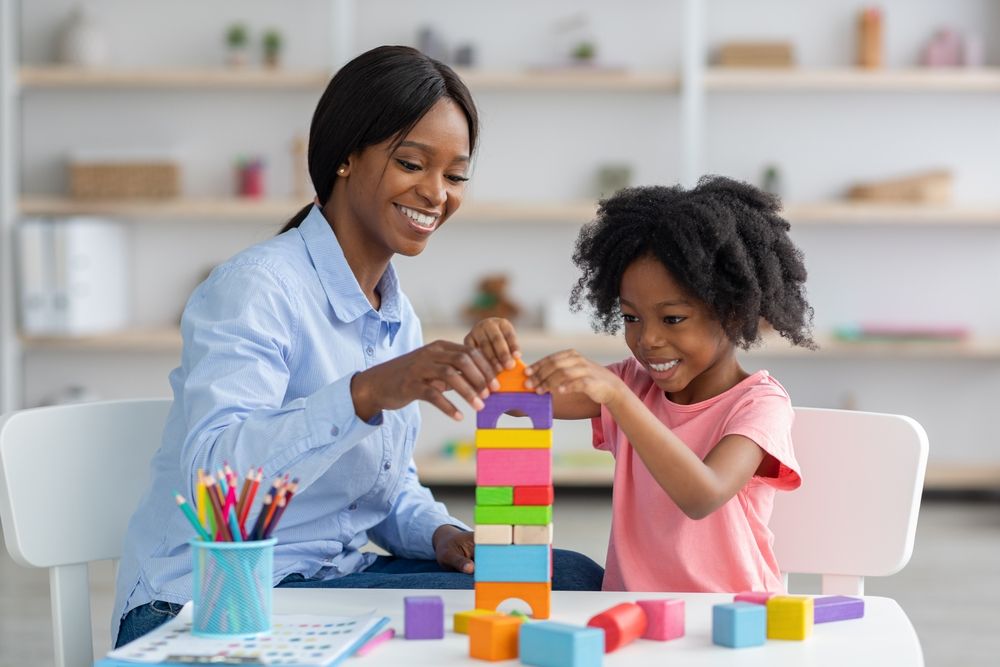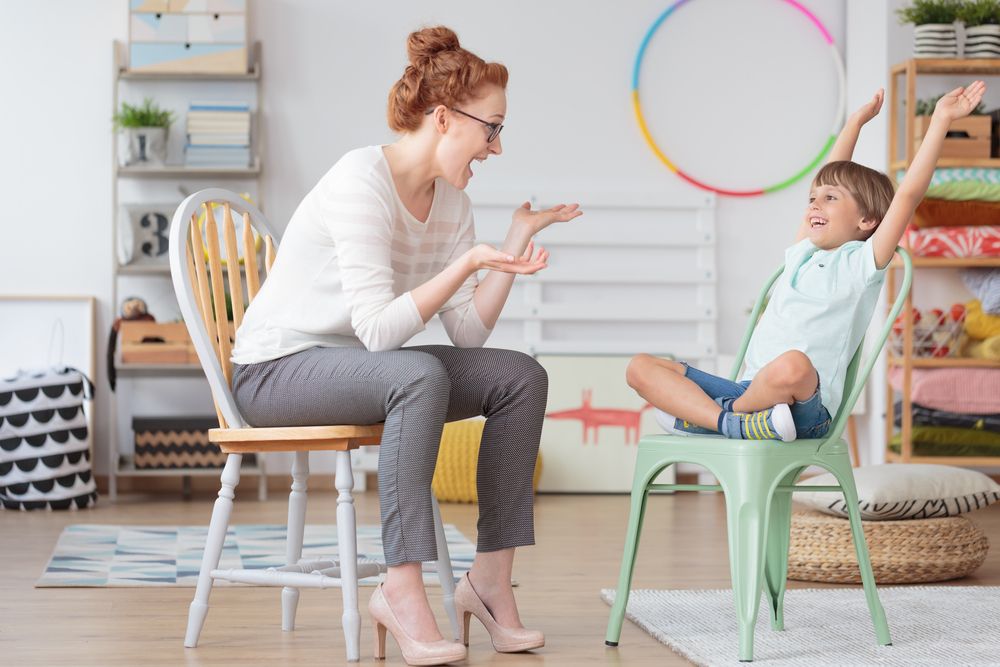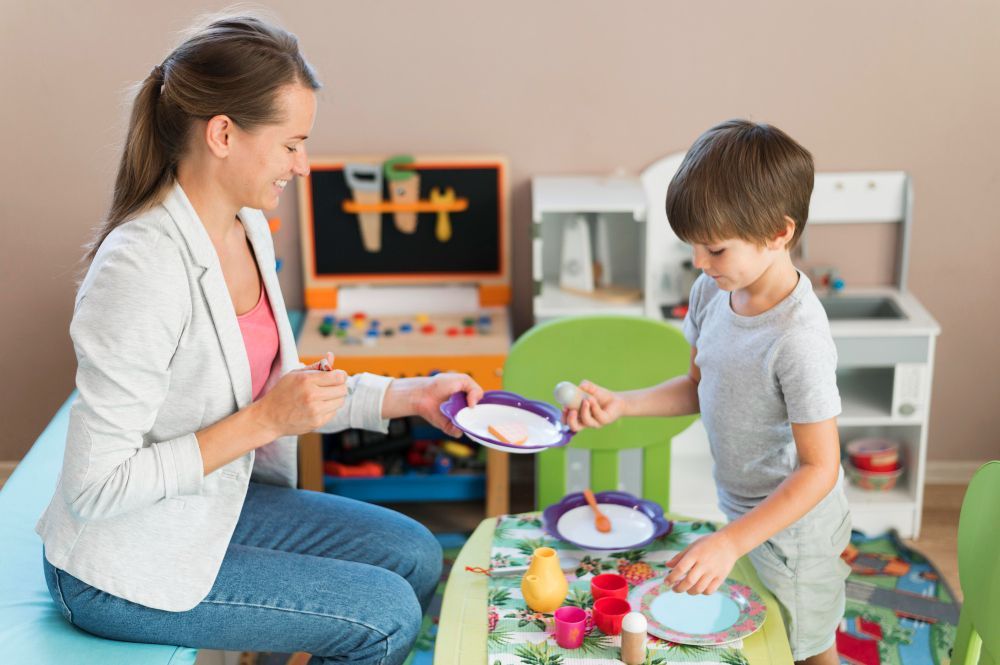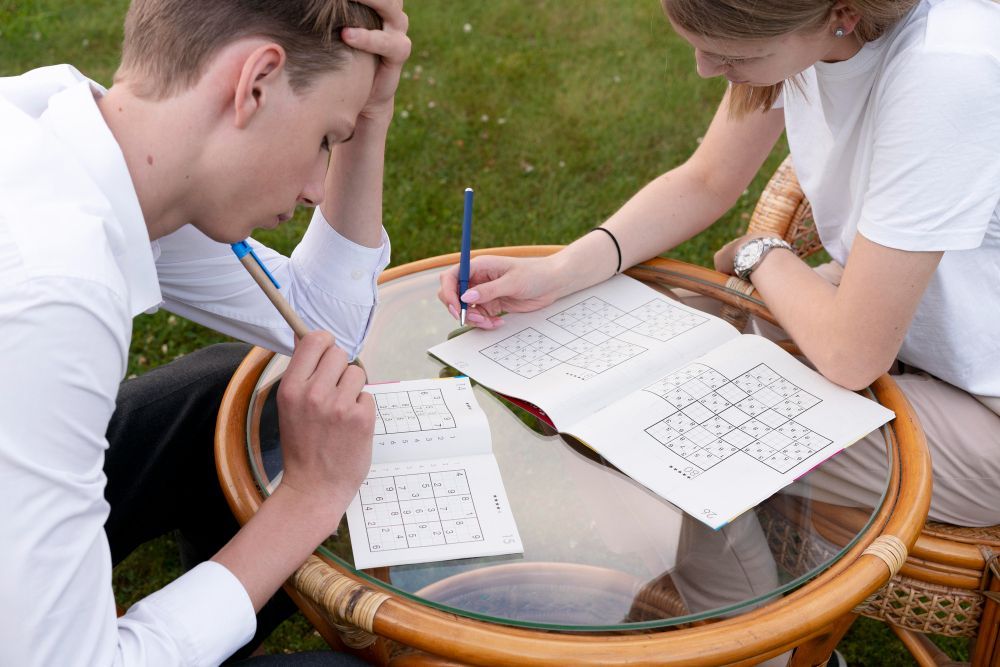Play Therapy
“Play therapy is based upon the fact that play is the child’s natural medium of self-expression. It is an opportunity which is given to the child to ‘play out’ his feelings and problems just as, in certain types of adult therapy, an individual ‘talks out’ his difficulties.”
- Virginia Axline
What is Play Therapy?
Play therapy is a technique where by the child’s natural means of expression, namely play, is used as a therapeutic method to assist him/her in coping with emotional stress or trauma. Play therapy creates a safe atmosphere where children can express themselves, try new things, learn more about how the world works, learn about social rules and restrictions, and work through their problems.
This method allows the child to manipulate the world on a smaller scale, something that cannot be done in the child’s everyday environment. Play therapy provides the tools and the atmosphere to help children express themselves, work on their problems, try out different solutions, and learn more effective coping methods. Through play and the guidance of a therapist who reacts in a designated manner, the child plays out his/her feelings, bringing these hidden emotions to the surface where s/he can face them and cope with them.

At first, you might wonder why anyone would suggest play as a way to overcome children’s problems. Here’s why play therapy is often recommended for children: Play is the primary way children learn about the world, understand how different things work, express their thoughts and feelings, develop their physical skills, develop their mental skills, and develop effective social skills and bonds.
As children grow, their use of language becomes more sophisticated, but throughout childhood, they usually express much more of themselves in their play. We can understand our children better if we understand their play. By watching children we often learn more about their thoughts, feelings, motivations and struggles than by talking with them. Play has been called the “language of childhood”.
Play therapy is for...
- Children dealing with parental conflict, separation or divorce
- Children struggling with social skills
- Children who have been traumatized through sexual, physical or emotional abuse
- Children who have been adopted or are in foster care
- Children who have been hospitalized
- Children who are dealing with issues of loss, such as illness or death of a loved one
- Children who have witnessed domestic or non-domestic violence
- Children diagnosed with Attention Deficit Disorder (ADD/ADHD)
- Children who have experienced serious accidents or disasters

Get in touch with a therapist
Our therapists understand that each child and family unit is unique, so therapy will be customized to best fit your needs. In addition, for your convenience we offer after school and weekend appointments.
Find a therapist
Visit our staff page and easily find a therapist that aligns with your unique needs and preferences.
Benefits of play therapy
- Facilitates a child’s expression of feelings
- Creates or enhances healthy bonding in relationships
- Develops a sense of trust in self and others
- Promotes self-confidence and a sense of competence
- Reduces anxiety about traumatic events in the child’s life
- Defines healthy boundaries
- Promotes appropriate behavior
Signs to be aware of:
- Separation anxiety
- Excessive anger, worry, sadness or fear
- Difficulty adjusting to family changes
- Aggressive behavior (hurting self or others)
- Behavioral regression
- Low self-esteem
- Excessive shyness
- Learning or other school problems
- Sleep, eating or elimination problems
- Rejection by peers or difficulty being accepted by peers
- Physical symptoms such as stomach aches or headaches that have no medical cause
Common themes in children's play:
- Anger/sadness
- Nurturing/rejection/security
- Trust/relationship/abandonment
- Boundaries/intrusion
- Power/control
- Self-esteem/self-worth/empowerment
- Fears/anxiety
- Confusion
- Identity
- Loyalty/betrayal
- Loss/death
- Loneliness
- Adjustment/change
See if we're in your network
What our patients say about us
Helping Children Express, Heal, and Grow in Naperville
At Fox Valley Institute in Naperville, play therapy offers a safe and nurturing environment where children can express their emotions, build confidence, and develop coping skills.
This therapy is designed to help children communicate their feelings and overcome challenges through play, a natural way for them to express themselves.
How Does Play Therapy Work?
During sessions, a trained therapist observes and interacts with the child in a way that encourages self-expression. Through games, storytelling, drawing, or pretend play, children learn how to process emotions, develop social skills, and gain a sense of control over their thoughts and actions.
Who Can Benefit from Play Therapy?
Play therapy is highly effective for children dealing with:
- Anxiety, stress, or depression
- Behavioral issues at home or school
- Trauma from abuse or neglect
- Parental separation or divorce
- ADHD and learning difficulties
- Social skill development
- Grief and loss
Why Choose Play Therapy at Fox Valley Institute?
Our Naperville-based therapists specialize in play therapy techniques that create a safe, judgment-free space for children. We help kids understand their emotions, build self-confidence, and develop healthy relationships through engaging, age-appropriate activities.
📅 Ready to help your child thrive? Contact us today to schedule a play therapy session in Naperville.
FAQs
What age is play therapy for?
Play therapy is typically designed for children aged 3 to 12 years old, though older children and teens may also benefit from creative therapy approaches.
How long does play therapy take?
The length of therapy varies depending on the child’s needs. Some children see progress in a few sessions, while others benefit from longer-term support.
Is play therapy only for children with trauma?
No, play therapy helps children with a wide range of emotional, behavioral, and social challenges, not just trauma.
What happens during a play therapy session?
A therapist engages the child in structured play activities such as storytelling, drawing, or role-playing to help them express emotions and develop coping skills.
How can parents support play therapy?
Parents can support their child by encouraging open communication at home, practicing positive reinforcement, and following the therapist’s recommendations.
Helpful resources
Get in touch
As experienced, licensed and professional therapists, our goal is to help you resolve your challenges. Our door is always open to help you through any crisis.





